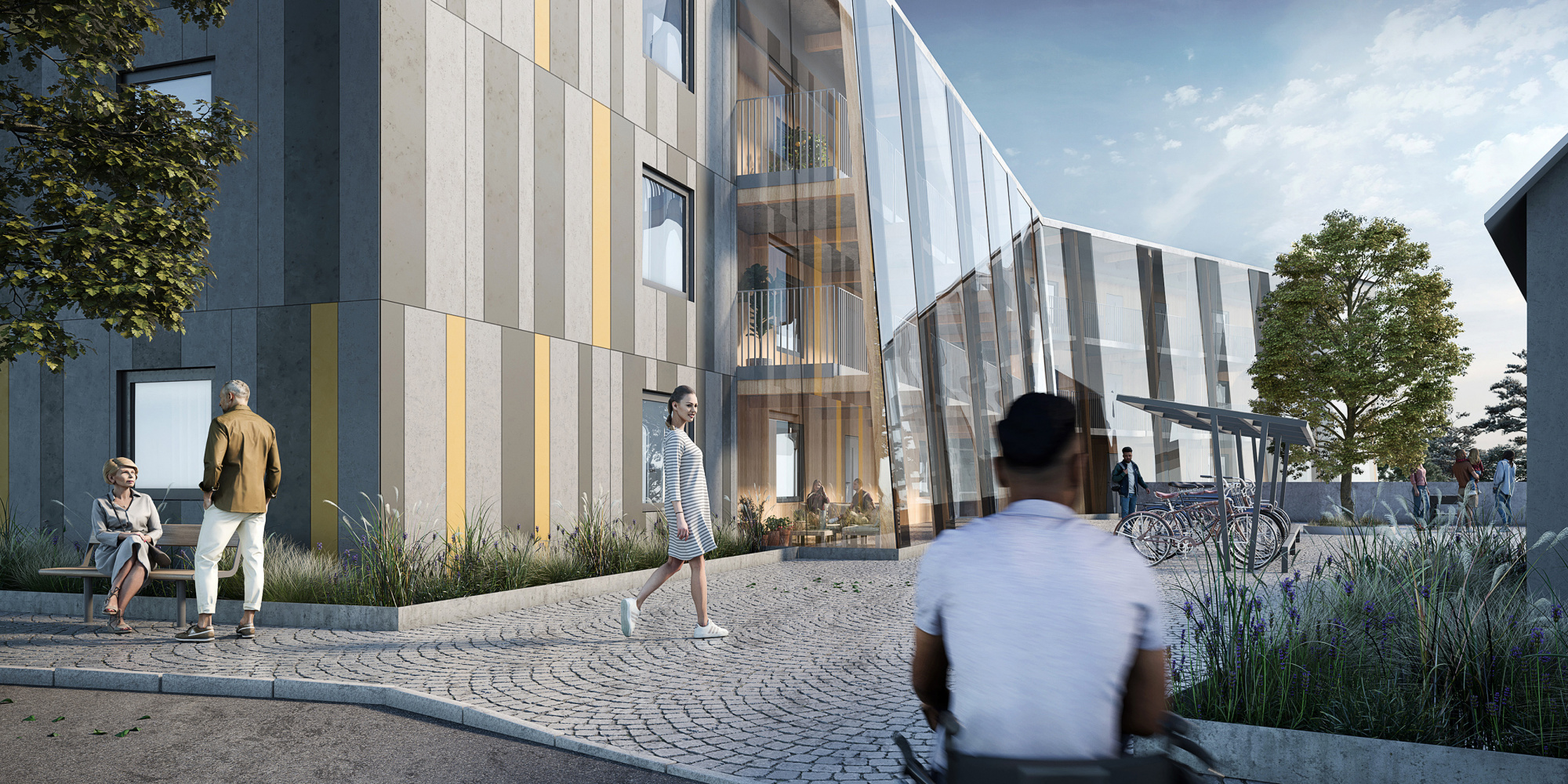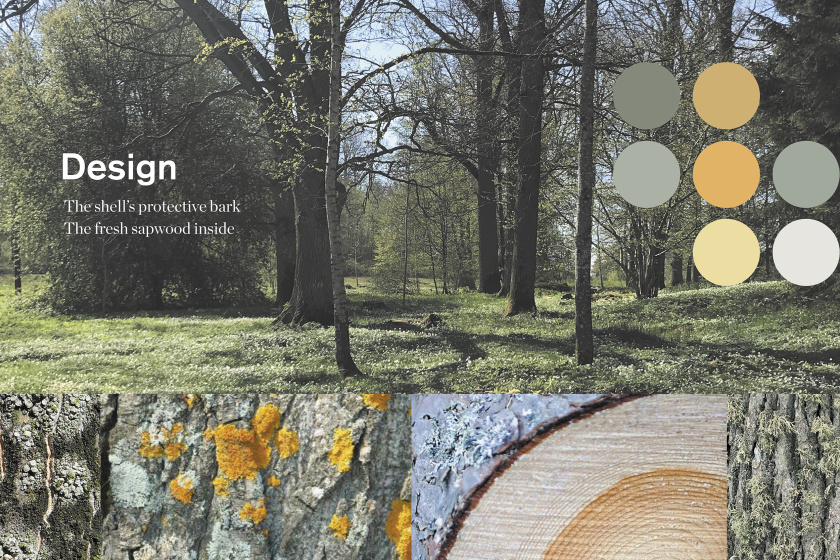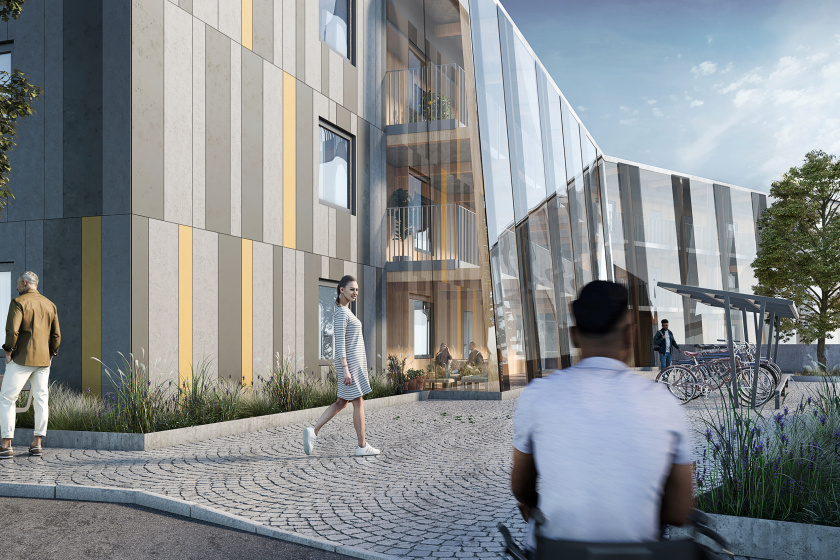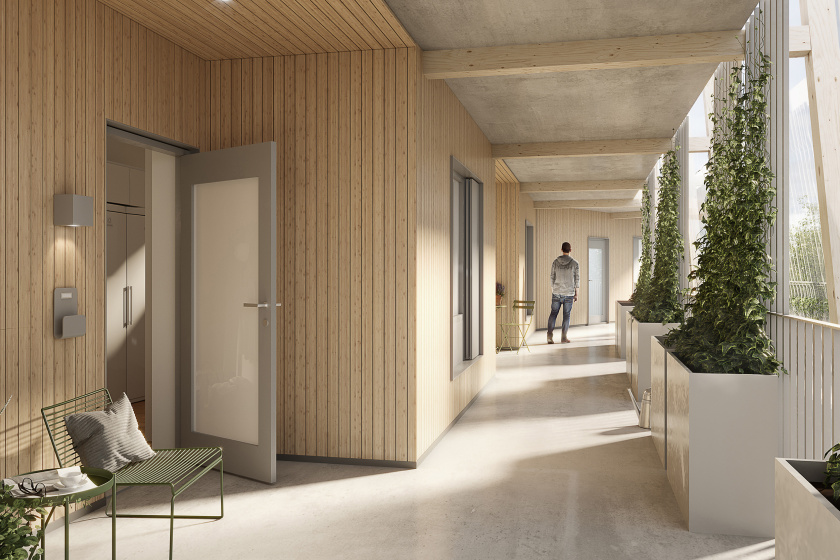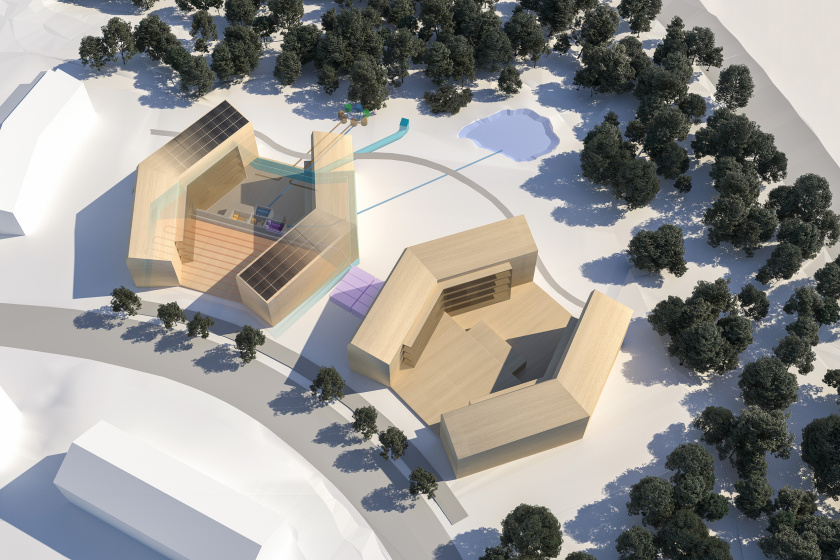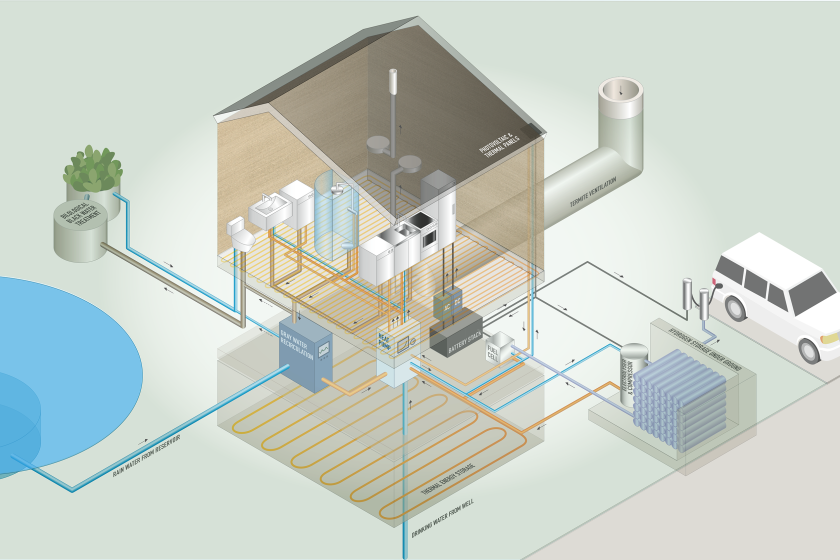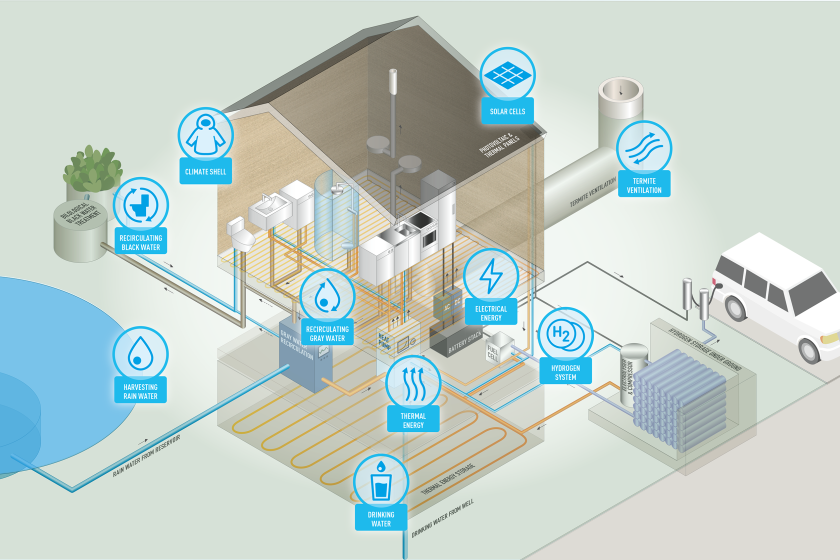Innovative system design + Future living = YEAH-concept
YEAH (Yellon Environmental Aesthetic Housing) is a concept for building self-sufficient apartment buildings. The houses supply their own and the inhabitants' energy needs, are self-sufficient in water, and take care of their own sewers. The aim is to find ways to allow communities and cities to grow without straining the already strained common infrastructure.
The houses will be ordinary, unusual houses. Those who choose to live here contribute to a better climate, but they should not have to adapt their lives to the houses in any way. They should be able to live their lives just as usual, as people do in ordinary houses. And the appearance of the houses should not have to be spoiled due to modern technology.
Yellon has done the overall system design and architecture. Together with about 10 specialist companies, Yellon has put together known, and to varying degrees proven, technologies in a unique combination. 44 apartments are pre-planned for construction in Jönköping.
Solar energy is the basis for the energy supply
Facades, roofs and glazing are provided with solar cells of various types. The estimated annual consumption of electricity is about 120,000 kWh. The electricity is temporarily stored in batteries before use. To cope with the winter months, it is planned to store energy in hydrogen, which is converted to electricity and heat via fuel cells. Vehicles may be charged with electricity if there is a large excess of energy.
To minimize the size of battery and hydrogen storage, energy consumption is optimized in different ways:
- A climate shell that enables less than 20 kWh/m2/year in energy consumption for heating and hot water.
- Liquid-cooled solar cells on roofs increase efficiency and provide both electricity and heat.
- Purification and recirculation of hot water and grey water minimizes the energy requirement for hot water by up to 80%.
- Heat recovery in the electrolysis process that makes hydrogen (55°C heats hot water during summer).
- Recovery of heat in the cooling water from the fuel cell (65°C heats hot water during winter).
- A highly efficient heat pump becomes the heart of heat- and hot water management.
- Seasonal storage of excess heat in a ground energy storage plant called ASES.
- A hybrid of Termite ventilation where the ground preheats the air during winter and precools the air during summer, and requires minimal fan operation.
- Toilet flushing with purified recycled rainwater that has been heated in a natural microbiological purification process, and therefore is not cold and unnecessarily heated in the flushing tank.
- Demand and seasonal control of heating.
- Opportunity for the residents to be able to measure and control their consumption themselves will trigger savings reflexes (lower housing costs).
- For operational safety, solar cells, charging and supply are sectioned so that you do not run out of electricity if any part fails or undergoes service.
Water consumption is expected to decrease by up to 75%
By collecting rain and melt water from roofs and hardened soil, you can manage the house's water supply. The condition is that the water is purified and used again. Drinking water comes from a drilled well, and the kitchen drain is diverted to the toilet drain. The drilled water well serves as a backup if the rainwater should not be enough, and the rainwater reservoir (water pond) can be reduced in size. Purification and recirculation of the water is expected to reduce water consumption by up to 75%.
This is managed by:
- Natural purification of rain and snow through open stormwater management and sand filters in the water pond.
- Purification and recycling of all domestic water.
- Purification and recycling of all toilet water (in its own closed circuit).
- Constant digital monitoring of water quality.
- Regular sampling of drinking water and hygiene water.
Unique in the world, says RISE
RISE Research Institutes of Sweden, is a research institute with a wide range of research areas. RISE's mission is to work for sustainable growth in Sweden by strengthening the business community's competitiveness and sustainability, and contributing to an innovative development of society. In collaboration with RISE, the YEAH concept has been developed and a strong consortium has been linked to the project. RISE has led the work in a feasibility study and digital simulation of the concept within the Swedish Energy Agency's E2B2 project. This research project lasted from November 2019 to November 2020 and was carried out by RISE, Mälardalen University, Vätterhem and Yellon, with support and input from a number of expert companies in various fields.
